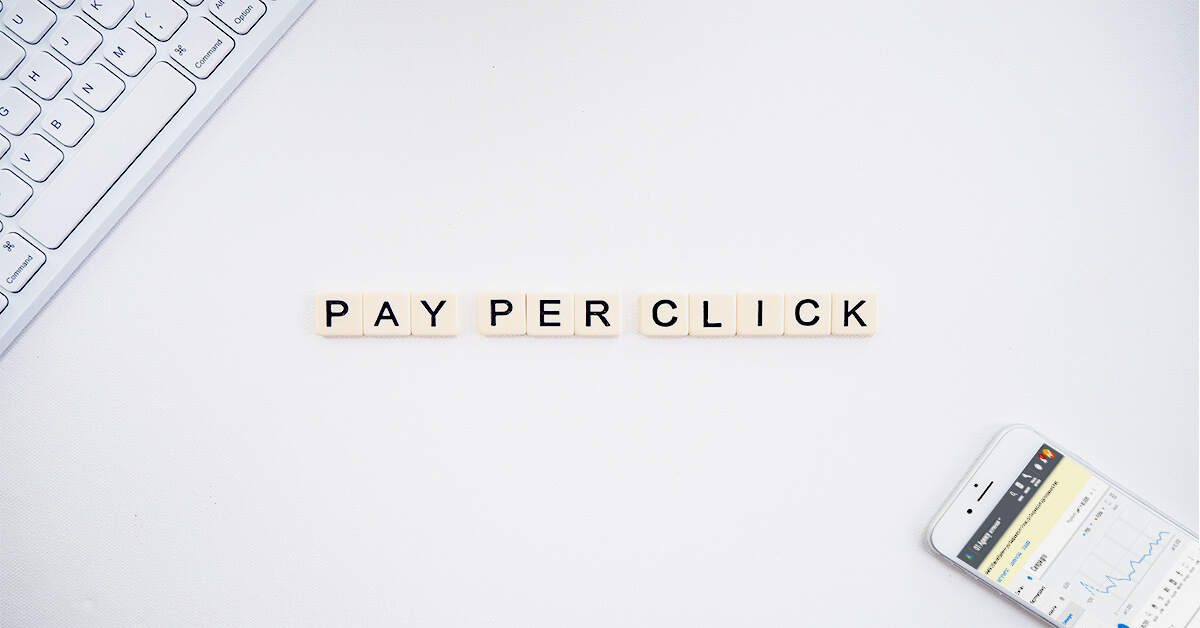When you run a PPC campaign through Google Ads, you can target your ads in a number of ways, including by location, interests and demographics. Yet, among all of these, keywords are arguably the best choice for your PPC campaign, as you can easily target users based on specific search queries that relate to your business. At the same time, you can tailor them to make sure that they only reach your most relevant business audiences.
However, knowing which keywords to target can be difficult for even the most experienced of PPC specialists. For that reason, we have put together the following quick guide to help you get started with your keyword strategy.

Now, depending on who you talk to, there are lots of ways to sort and research your keywords. We like to group keywords into the following categories:
- Branded keywords – these are keywords that include your brand name.
- Although you are likely to get your ads in a high position – for a low price – using these keywords; remember, that users searching for your name will already know who you are, so they might not be the most valuable people to pay for.
- Generic keywords or Short Tail keywords – these are single keywords that relate to your business, but have no clear intent behind them. For instance, if your business sells chairs, then a generic keyword you could use would be “armchairs”. However, there is no more information about what the user is after – they might want to buy one, sell one or fix one.
- While these terms tend to have high volumes of users searching for them; the broad nature of them can make them less relevant to your business, resulting in wasted budget.
- Long Tail keywords – these keywords are phrases that create a more specific search query in relation to your business e.g. “soft blue armchairs”.
- Using these terms can help you to reach users who are interested in the specific product or service that you offer (without wasting any of your budget on users who aren’t valuable to your business). Depending on the industry you’re in, the average CPC for long tail keywords can be much cheaper than the CPC for more generic terms (since there are fewer companies looking to reach those users).
- Intent keywords – these are a type of long tail keyword that we separate out based on specific words that are included to show the intent of the search query. For example, “soft blue armchairs near me” or “armchairs for sale” both demonstrate a clear intent to purchase that a broader term would not.
- These terms are usually the most valuable because you can be sure of the user’s end goal. This means, you can make sure you’re only paying for users who are likely to benefit your business. However, due to them being highly specific; searches like these tend to happen less frequently, suggesting that you may not reach a particularly large audience whilst using them.
- Competitor keywords – these are keywords that include the name of your competitor.
- These can be handy for reaching users who are interested in a product similar to one you sell, who are actively looking at companies that provide that product or service. However, these terms can often have high CPCs and are likely to have low placements, as the company themselves will be bidding on them too. Likewise, you will be at a disadvantage, as you won’t have any matching brand terms in your ads or landing pages.
What type of keywords should you target with your PPC campaign?
Truthfully, you should always include a variety of keywords in your PPC targeting. However, to properly succeed in this world, you will also need to prioritise certain groups over others, depending on the objective of your PPC campaigns.
Take the following pointers:
Increase the impressions on your PPC campaign:
You should choose keywords that have high search volumes and low CPC’s. Even if a keyword has got a low CPC; if it has only got a search volume of 10 per month, you will struggle to increase your reach. For that reason, you should opt to prioritise low priced short tail keywords in your campaign.
Increase the clicks or Click-Through Rate on your PPC campaign:
To get clicks on your ads, you need to be relevant to the user’s search query. We suggest picking long tail keywords that match specific keywords used in your ads or on your landing pages. Just make sure to still target keywords that have got a high enough search volume to actually generate an increase in clicks.
Branded keywords can similarly boost your clicks and CTR, as they are already familiar with your brand and will be inclined to click on ads from your business.
Increase conversions on your PPC campaign:
Similar to clicks and CTR, you can increase conversions from your ads by targeting more relevant users. Here is where targeting phrases that show a clear intent can be hugely beneficial. You may not get quite the same reach with these highly specific keywords, but you can still engage with users who want exactly what you’re offering – making them more likely to convert.
Targeting competitor keywords can also raise your conversions. This is because users searching for a particular brand will have already made a conscious decision to sign up or purchase a type of product. The difference is, you may still be able to convince them to switch to a competitor (you) as you have a better offer.
Reduce the cost of your PPC campaign:
Everyone wants the best of both worlds – the opportunity to get the most out of their PPC budget, as well as the chance to spend less on advertising. This is where you will need to target keywords that have a low CPC. Often these will be longer, more specific keywords with less competition that have a higher relevancy to your ad copy and landing pages.
You should always remain committed to attracting relevant audiences to your business. But as you can see – there are occasionally benefits to including broader keywords in your targeting.
How to research keywords for your PPC campaign
There are a lot of great tools you can use that can help you to research and analyse keywords. However, the best place to start – when finding keywords to target in a PPC campaign – is to simply describe the product or service you’re offering.
We recommend starting with a generic description of your product e.g. “chairs” before creating a list of increasingly specific terms that your customers might use, for instance “armchair”, “red armchair” or “red fabric armchair”.
You can also do this in reverse, and look at a specific product you have. From here you can work backwards to find more generic terms that users might search for e.g. “red armchair” becomes “armchair” and then “living room furniture”, “red furniture” and “red chair”.
Once you have got a few keywords to start with, you can use tools like the Google Ads Keyword Planner or the SEM Rush Keyword Magic Tool to find variations or related keywords that you might want to include in your targeting. These tools can also help you to analyse which keywords will be best for your strategy – based on the average monthly search volume; the level of competition, and the average cost of the keyword.
After extracting keywords from your own business, it’s always worth analysing your competitors to identify keywords or variations you may not have considered. You can extract keywords from a whole website or from a single page in Google Ads or from SEM Rush.
By targeting unbranded keywords your competitor’s audiences are using; you can reach a relevant audience without the cost associated with regular competitor keywords.
At this point, you should already have a decent selection of keywords to target. However, a final place you can check before launching your campaign, is the Google autocomplete options and related searches for your chosen terms – since keyword tools can’t always be counted on to show you these keywords. A good example of an autocomplete for “red armchair” is “dark red armchair” – a keyword you may have missed during your previous keyword research.
The keyword report in Google Ads will help you to analyse the performance of your keywords once your campaign is live. You will be able to see the impressions, clicks, CTR, and CPC of your targeted keywords, as well as comments from Google about the performance – including if a bid is too low to get a first page placement or if ads are rarely triggered by a certain keyword due to a low quality score.
In addition to reporting on your targeted keywords, you can also get reports on other search terms that bring users to your ads. This is a good report to use as it can help you to understand whether there are any keywords you have missed, or if your current keywords are bringing irrelevant audiences. Here, you can add search terms to your targeted keywords or exclude them from triggering ads in the future.
Important things to remember when targeting keywords in your PPC campaign
Quality over quantity
While you’ll want to target enough keywords to encourage traffic to your ads; you’ll achieve better results by selecting a smaller number of keywords that align with your objectives, than a larger number of keywords that won’t help you achieve your goals.
Keyword match type
Once you’ve found the right keywords to target, you can choose how Google matches those to a user’s search query. Read more about keyword match types.
Negative keywords
Negative keywords are arguably just as important as your normal keywords, as they can help you filter out irrelevant audiences based on their search query, enabling you to save your budget for more valuable users.
For example, a popular search query that could trigger your ad – based on “red armchair” being included in your targeted keywords – is “red armchair and footstool”. If your business doesn’t sell footstools, you won’t want to waste your budget on someone who isn’t going to be interested in your results. Because of this, you could add “footstool” to your negative keyword list to avoid being shown for searches including that keyword in the future.
Relevancy
Your ad placement and cost of keywords will be heavily influenced by how relevant your targeted keywords are to your ads and landing pages. By using the same language across all elements of your PPC campaign, you can demonstrate to Google that you are the most appropriate result for the user’s search query. In Google Ads, you can analyse your quality score to help identify where you could improve the relevancy of your PPC activity.
As we mentioned at the start, there are a whole host of ways to target audiences. However, by having a high quality list of keywords to target, you will be off to a good start.
When choosing which keywords to target, the main things to bear in mind are picking phrases that are pertinent to your business and aligning the type of keywords you’re focusing on with your PPC objective.
For more help with your Google Ads activity, feel free to get in touch with our team.



